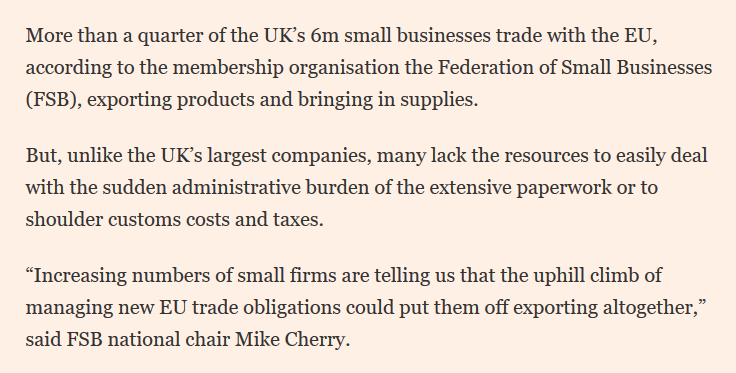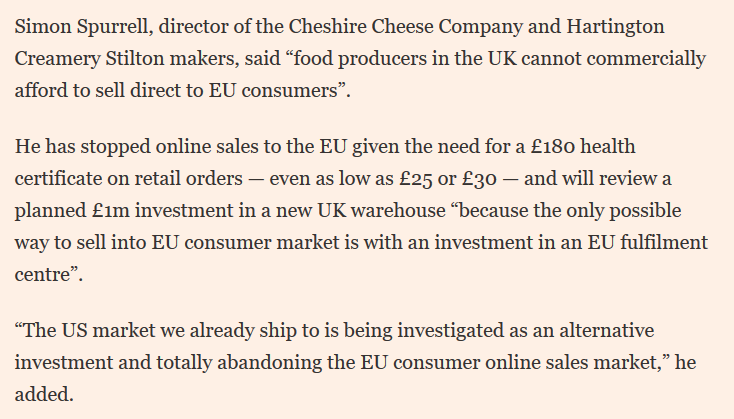2 - Parliament steps up its game on government scrutiny beyond select committee reports and starts expecting answers on why priorities have been chosen, why trade agreements with which countries, what the content should be etc
3 - UK business do their best to keep on exporting and importing, innovating and partnering, to overcome the new barriers in their way, and also to keep shouting for government to remove barriers as they arise
4 - Brexiteers show even the vaguest hint of interest in the views of those who continue to want strong ties with the EU, rather then repeating over and over again, to even the vaguest hint of criticism, "you lost suckers, get over it"
5 - Remainers, rejoiners and the like stop talking quite so much about how the 2016 referendum was stolen from them, which is becoming both history and suggests that 17 odd million people were conned
(NB not confident on the last two)
6 - The Labour Party to develop a trade narrative, one that starts with trade being good of itself rather than an opportunity to talk about another issue. And which perhaps provides the government with an incentive to compete with their own realistic narrative.
7 - Moving wider, I'm hoping to see the EU emphasise more the "open" and "strategic" and less the "autonomy". There's a limited amount trade policy can do to encourage more manufacturing jobs, but there's a lot it can do to discourage them.
8 - For the US, far too much to hope that their trade policy moves beyond the priority of trying to force their food standards on the world. But why not? Really about time for a trade policy update, we're happy to eat the food as long as it is of high quality.
9 - I'm hoping trade twitter has a little bit of a quieter time but you still all want to listen to us. Even more wishful thinking I realise. But perhaps if we promise to try to be more relevant and less focused on how trade agreement smallprint works?
10 - Finally, and least realistic of all, I'm hoping 2021 sees everyone play nice here, with lots of debate, helpful contributions, and more cat gifs than insults. Stretch target.
In any case hoping for a better 2021 for all.

















